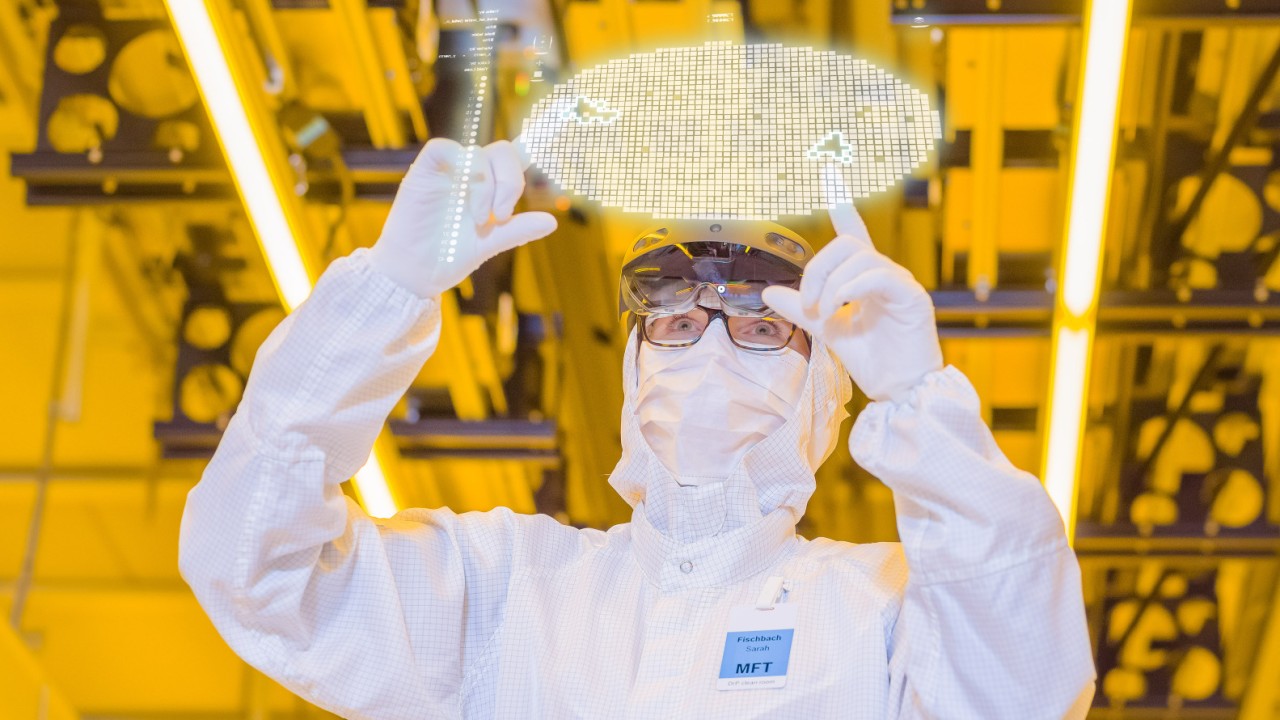Thessaloniki gets ready for its metro launch in November
The underground rapid transit lines have been under construction for almost two decades due to various project delays
 TheMayor.EU logo
TheMayor.EU logo The company will enlarge production space in Dresden and Reutlingen, while also investing in research and development
Today, the German company Bosch announced it will invest 250 million euros in its chip manufacturing plant in Dresden and an additional 170 million in Reutlingen, near Stuttgart. The Dresden factory opened in December 2021 for a cost of 1 billion euros – the largest single investment in the company's history. Reutlingen, on the other hand, is a legacy site of Bosch from the late 20th century.
The company also announced plans to pour 3 billion euros into its semiconductor factories by 2026. This includes both the Dresden plant and the one in Reutlingen. The money will go towards expanding clean rooms, which will increase production capacity, as well as research and development, as the German manufacturing giant aims to stay at the forefront of consumer goods production.
Furthermore, Bosch is already a leader in semiconductor production on the continent. Its output ends up in consumer electronics, household appliances, but also electric vehicles, including cars and e-bikes. This makes the enterprise one of the main drivers behind the European Chip Act of last year, which states that the EU should double its semiconductor production to cover 20% of the world market.
One thing that the ongoing worldwide semiconductor shortage has definitely revealed is that microchips are the key to the technology of tomorrow. This includes sustainable mobility in all its forms, as it relies heavily on electronics. But even more basic appliances, such as refrigerators, thermostats or even clocks, all now have a digital component.
 Keeping up with global trends and continuous innovation will ensure
Keeping up with global trends and continuous innovation will ensure
Bosch's chip manufacturing stays competitive on a global scale,
Source: Bosch
This sentiment was echoed by Dr Stephen Hartung, Chairman of the Management Board at Bosch in a press release. He also pointed out that Bosch factories are particularly geared toward the European market, as they have the capacity to produce 40 to 200-nanometre chips.
The expansion in Reutlingen, for example, will focus primarily on production capacity and the existing 35,000 square metres of clean rooms will be expanded to 44,000 square metres by 2025. In Dresden, the site will be expanded from 10,000 to 13,000 square metres, while the company will also invest in a research facility north of the city.

The underground rapid transit lines have been under construction for almost two decades due to various project delays

Now you can get your wine in Talence by paying directly in Bitcoin

That’s because the state has to spend money on updating the railway infrastructure rather than subsidizing the cost of the popular pass

Rethinking renewable energy sources for the urban landscape

The examples, compiled by Beyond Fossil Fuels, can inform and inspire communities and entrepreneurs that still feel trepidation at the prospect of energy transition

Now you can get your wine in Talence by paying directly in Bitcoin

The 10th European Conference on Sustainable Cities and Towns (ESCT) sets the stage for stronger cooperation between the EU, national and local level to fast track Europe's transition to climate neutrality.

At least, that’s the promise made by the mayor of Paris, Anne Hidalgo

The underground rapid transit lines have been under construction for almost two decades due to various project delays

At least, that’s the promise made by the mayor of Paris, Anne Hidalgo

Hostal de Pinós is located in the geographical centre of the autonomous region

Despite its church-y name, the district has long been known as the hangout spot for the artsy crowds

Urban dwellers across the EU are having a say in making their surroundings friendlier to people and the environment.

Forests in the EU can help green the European construction industry and bolster a continent-wide push for architectural improvements.

Apply by 10 November and do your part for the transformation of European public spaces

An interview with the Mayor of a Polish city that seeks to reinvent itself

An interview with the newly elected ICLEI President and Mayor of Malmö

A conversation with the Mayor of Lisbon about the spirit and dimensions of innovation present in the Portuguese capital














